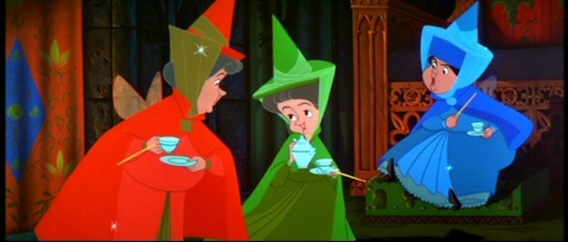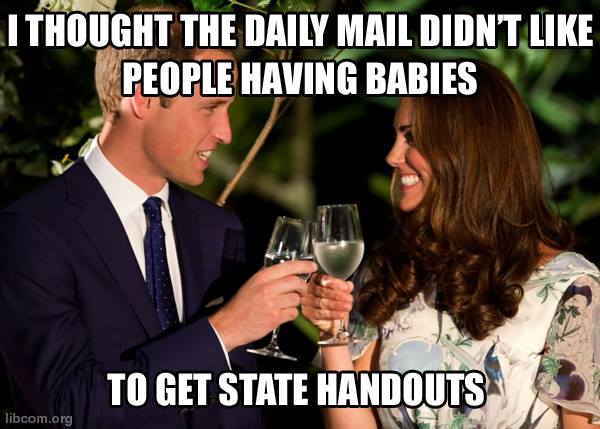As a child I was enchanted by the idea of princesses and fairy godmothers and obsessed with the story of Sleeping Beauty. I even directed classmates in a play version of it in the playground of my Nairobi primary school. In case you aren’t familiar with the story, three good fairies arrive to bless the infant princess. Using their magic wands, one gives her the gift of beauty and the second the gift of song, but before the third can give her blessing, an evil fairy appears and curses the princess because she wasn’t invited to the christening ceremony. The curse is that the princess will die when she touches a spinning wheel’s spindle before sunset on her sixteenth birthday. Luckily the third fairy who was interrupted from her wish making uses her blessing to weaken the curse so that instead of death, the princess will fall into a deep sleep until she is awakened by a kiss.
Since the Royal baby was born, there has been a lot of fanfare with landmarks in London and all over the world lit up to celebrate the birth of the Royal baby. Many in both red and blue leading up to the birth and then blue upon confirmation of the baby’s gender. Former colonies have also got in on the act with almost 40 buildings in New Zealand partaking in the lighting frenzy. This baby has certainly had the Royal treatment in the media:
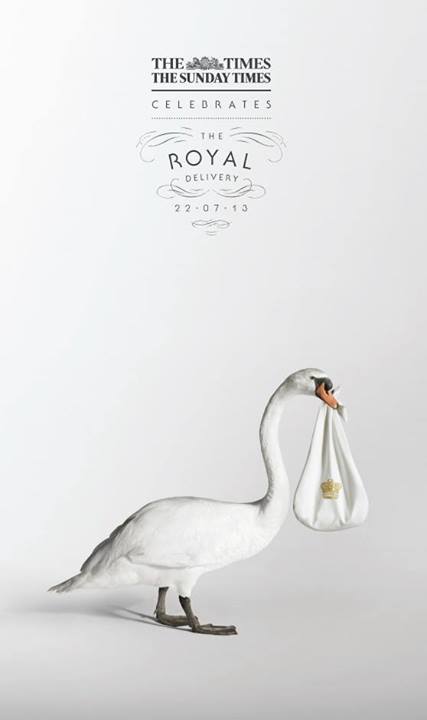
Led to creative gestures like this one from the crew of the HMS Lancaster based in the Caribbean:

I’ve loved the idea of being able to bestow wishes, fancying myself as a fairy godmother even if I haven’t had a magic wand. Working on a postnatal ward in the 90s, I would wish every infant and their family a wonderful new life. The birth of the Royal baby has rekindled my desire for godmothership, so this is what I wish for every infant, mother, and family:
- I wish the arrival of every infant in the world was greeted with the same sense of anticipation and enthusiasm as the Royal arrival.
- I wish every mother, infant and family could receive the same “care” as the Royals will.
- I wish “we” cared as much about maternal and infant mortality around the world.
- I wish “we” cared as much about “other” mothers who aren’t supported in their mothering and against whom active measures are taken to regulate and surveil their bodies merely because of the accident of their own circumstances.
- I wish we could remember the resources that have been extracted globally to maintain the Royal Family in the lifestyle they are accustomed to and that these could be redistributed.
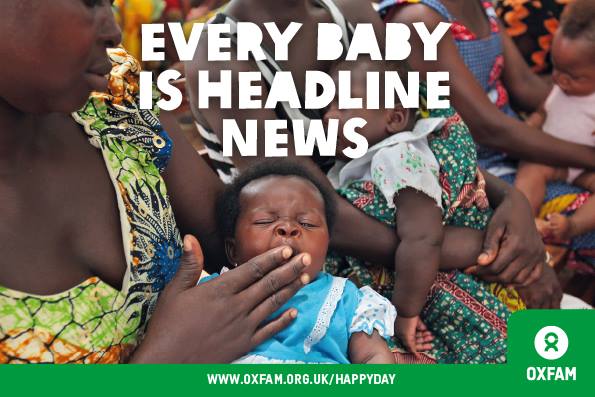 However, all babies are not created equal and neither are all mothers. Regulating the reproduction of those considered to be a burden on society has been a way to secure and control the well-being of the population, leading to the surveillance and management of women’s bodies. The quality and quantity of the populations been an enduring concern of governments, a concern which has seen two kinds of policies, the ones that encourage some mothers to procreate (pronatalist) and others that discourage or even coerce other mothers from reproducing (antinatalist).
However, all babies are not created equal and neither are all mothers. Regulating the reproduction of those considered to be a burden on society has been a way to secure and control the well-being of the population, leading to the surveillance and management of women’s bodies. The quality and quantity of the populations been an enduring concern of governments, a concern which has seen two kinds of policies, the ones that encourage some mothers to procreate (pronatalist) and others that discourage or even coerce other mothers from reproducing (antinatalist).
Our recent colonial history is emblematic of these concerns, reflecting a shift from Malthusian anxiety about over-population and the inability of the environment to support growth to a concern with the quality of the population. In white settler nations pronatalist movements often had nationalist overtones, equating international prominence with demographic strength, requiring both productive and reproductive capacity. For example in the United States, Republican motherhood was a site of civic virtue, demonstrated through bearing arms if you were a man and producing and rearing sons if you were a woman. These sons would embody republican virtues, even if as a woman you were excluded from citizenship.
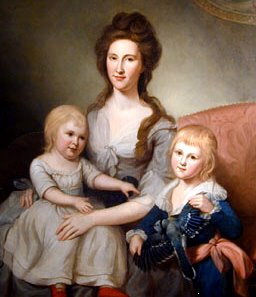
Fears of ‘race suicide’ arose in early 20th Century Australia, New Zealand and the United States and made motherhood a political duty for white women in the interests of the nation and the health of the race. Reproducing white citizens in the colonies was a patriotic duty for women superseding involvement in public affairs. The concern about ‘race suicide’ was attributed to middle class women neglecting their duties by not having children while ‘other’ women (migrant, indigenous or working class) had too many in white settler societies. Anglo-Saxon middle class’ individualised mothering contrasted with shared child rearing that was more common in other societies. This resulted in women from those communities, for example immigrant and indigenous women, being labelled as bad mothers. Evolutionary theory played a role in demarcating good and bad mothering: Anglo-Saxon and Northern European women were positioned on the top of the hierarchy of the ‘races’ and were the only women capable of being good mothers irrespective of what other mothers did. Such women bore the responsibility for ensuring the well-being of their families, the future of the nation and the progress of the race. Anglo-Saxon mothers were thus both exalted and pressured.
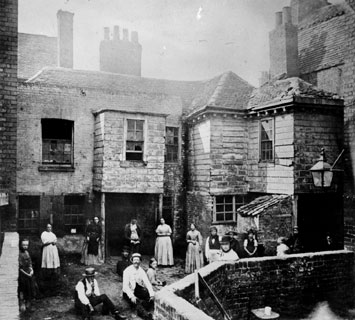
It has always been easier to focus on the management of mothers rather than politically challenging public health issues. Schemes to address maternal malpractice such as health visitors (whose job it was to keep surveillance and intervene to educate women) were initiated to ensure that the British working class mother was subjected to the imperatives of the infant welfare movement and became a ‘responsible’ mother. A proliferation of organisations to promote public health and domestic hygiene among the working class thrived, assisted by upper or middle class women. This class-based maternalism in Europe and North America reflected a race-based maternalism in the colonies, where Europeans challenged and transformed indigenous mothering in the name of “civilisation, modernity and scientific medicine” (Jolly, 1998, p.1). Similarly, in colonised countries the ‘cleaning up’ of birth was achieved through both surveillance and improved hygiene and sanitation. Sadly, interventions have involved the removal of children, most notably in the Stolen Generation in Australia, where Aboriginal – and some Torres Strait Islander – children were forcibly removed from their families by Australian Federal, State and Territory government agencies, and church missions, from the late 1800s to the 1970s and children sent either to institutions or adopted by non-Indigenous families.
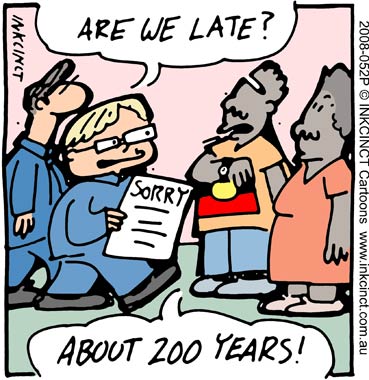
A grassroots campaign calling for a national apology led to the first national Sorry Day on 26 May 1998 marked by ceremonies, rallies and meetings. Sadly, Australian Greens leader Bob Brown’s move to amend the sorry motion by offering “just compensation to all those who suffered loss” – was voted out by all the non-Green Australian Senators.

Forced sterilisations without consent occurred as recently as between 2006 and 2010 where prison doctors sterilized 150 California women. The targets of Golden State prisons were people with a mental illness or who were poor. The practice was eventually banned in 1979, but even by 1933, California had subjected more people to forceful sterilization than all other U.S. states combined. This eugenic programme spread to Nazi Germany where extreme anti-natal racial hygiene doctrines were implemented against ‘unfit mothers’. Anti-natalist ideologies have often occurred concurrently with pronatalist ones. Women with mental or physical impairments or ethnically ‘other’ women such as Jews, Gypsies and Slavs were forcibly sterilised and abortions conducted, while Hitler simultaneously supported initiatives for the growth of a strong German Nazi Volk through a virtuous German motherhood. Breastfeeding in Nazi Germany was obligatory and women were awarded the Mutterkreuz medal (Honour of the German Mother (Ehrenkreuz der deutschen Mutter) for rearing four or more children.
So how will the other children born in the UK on 22 July 2013 fare? Emily Harle in The new Prince and his 2,000 birthday buddies paints a bleak picture. To summarise, 226 children of the 2,000 will live in overcrowded, temporary or run down housing, 11 will be homeless. 540 children will live in poverty. 8 children will die before their first birthdays and poor housing and low quality healthcare will be contributing factors.13 children will be taken into care during their childhood and have around five different sets of carers and nine of them will leave school with no qualifications. 120 will have a disability and 40 will have difficulty accessing services, support and activities that their able-bodied friends can. 25 of the 2,000 will be young carers who look after ill or disabled family members. Eleven of the children born on the same day will suffer from severe depression during their childhood, and 500 will experience mental illness during their lives, half of whom will have reported that the problem began before they were 18.
Seumas Milne contends that the monarchy embodies inequality and fosters a “phonily apolitical conservatism”. The hypocrisy at the heart of the celebration of the monarchy is seen in the British government’s preaching of democracy globally, whilst supporting an undemocratic system at home through an unelected head of state and an appointed second chamber giving the monarchy significant unaccountable powers and influence aside from the more visible deferential culture and invented traditions.
The festivities to mark the Royal baby’s arrival are likely to continue for some time but let’s not forget the ‘other’ mothers, infants and families for whom there are no celebrations and for whom there will never be. Let us not forget that not all lives are equal, there are those whose lives are valued and those who aren’t. Most of all, let’s do something about it.

